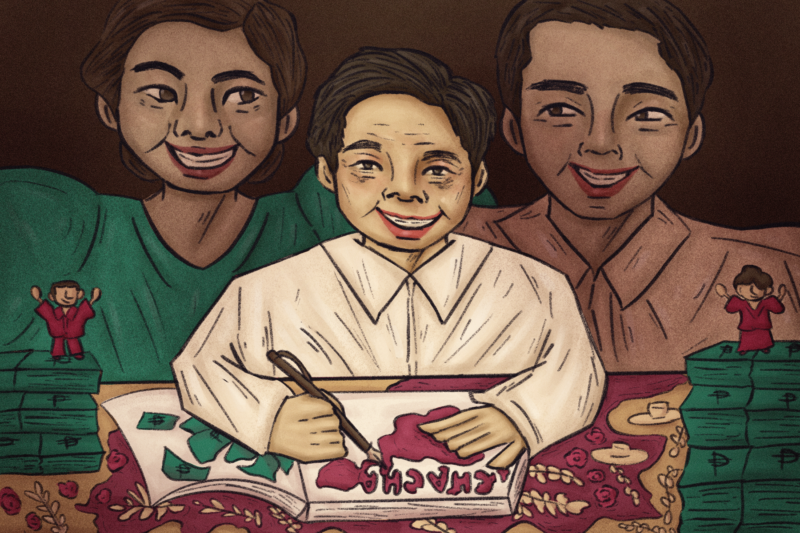In what many believed to be an inevitability, the Ateneo community is again without a Sanggunian. The total lack of an elected Top 4 is just the tip of the iceberg, with a startling number of empty seats from the block representatives up to the School Boards. The past few years have seen what can only be described as institutionalized apathy towards the student government. Despite many efforts to promote the exercise of suffrage and extend voting periods, the fact of the matter is: Nobody cares.
This is no secret. If the past two years were any indication, next school year will probably bring about another failure of elections. Nobody can deny that the Sanggunian of recent years has worked at its purpose as intermediary between the students and the administration. The covered path that now connects Gonzaga to the Science Education Complex (SEC) buildings is a Sanggunian initiative, as are the barrages of texts block representatives send out about guidance tests and such. But come election week, it’s likely that well over half of the student body will take that covered walkway right on past the SEC-A voting booth, and no number of text blasts can change that.
Sometimes, even the greatest of efforts seem futile. Where another university’s student government hopefuls aspire to be elected, our candidates cross their fingers just to reach quota. Take a quick look through the Ateneo Commission on Elections tallies and you’ll find blocks with quotas of three votes failing to reach the minimum. But what can we expect? In a campus equipped with systems for direct discourse with the administration and organizations that double as homes for students, representation through student government does seem a little redundant.
As an intermediary between the administration and the student body, the student government functions on a foundation of representation, one where a student is made aware of ongoing discourse through his or her elected representatives. But the widespread ignorance to ongoing affairs stands evidence to a failure to achieve even this basic role.
Recently, people have suggested a total abolition of the Sanggunian, from which a new one can be built out of necessity, if such necessity exists. Though extreme, this highlights the need for a second look at not just the purpose of the Sanggunian, but the application of this purpose as well. If history has anything to say on the matter, it’s that the necessity of a Sanggunian lies in its potential to be so much more.
Jump back to the often-referenced Sanggunian of four and a half decades ago. Ateneo Sanggunian President Edgar Jopson meets with another president, then-Commander-in-Chief Ferdinand Marcos, to discuss the terms of a possible constitutional change. With more command in his voice than request, he called for Marcos to put down in writing a promise not to run in the coming elections, to effectively end his regime. Jopson stood against a man who would go on to become recent Philippine history’s most infamous tyrant—and through him, so did the Ateneo and every student in the country.
In the years to come, the Sanggunian may aim to go back to the days when serving the students was the given and not the goal, to actualize its potential as an institution that aims to empower Ateneans, to prove that it exists not just as a bridge on the hill, but down it.
But before then, the burden of the Sanggunian is to review its systems of representation, knowing full well that democracy is a two-way street. It needs to reflect on its place in a school that seems designed to function without it. It needs to understand its potential to elevate itself past campus affairs and empower students to make changes on a national level. The burden of the Sanggunian is to take all this into account, look its constituents in the eyes and justify to them its existence.
As of now, this is a burden the Sanggunian seems willing to shoulder. Moving to take on a constitutional conversion, the skeleton crew of Sanggunian officers now aims to shift itself to find new purpose, and new structure in its efforts to be relevant again. Whether or not this proves effective, and whether or not the student body chooses to acknowledge their representatives, only time will tell. For now, we can only hope.







